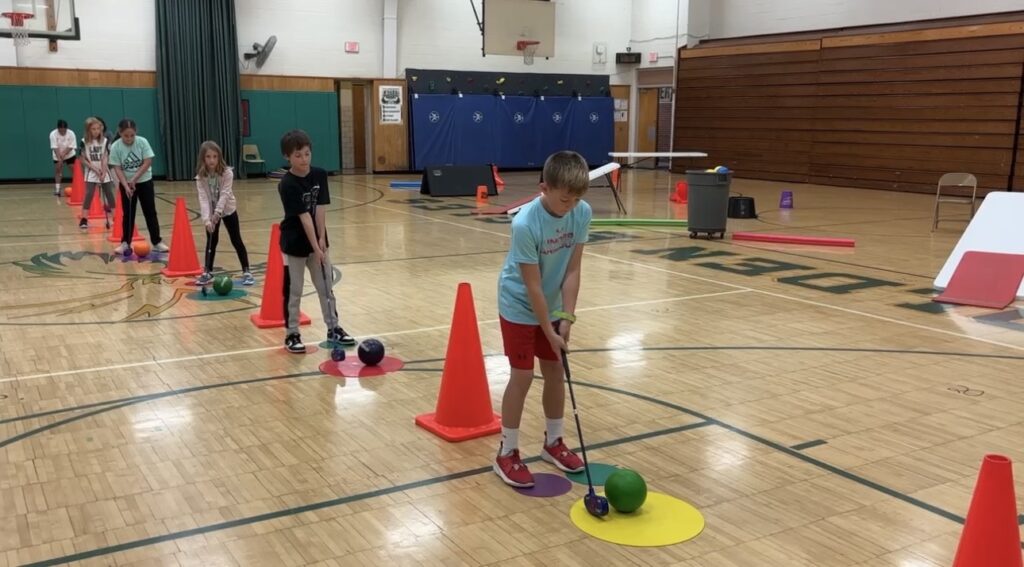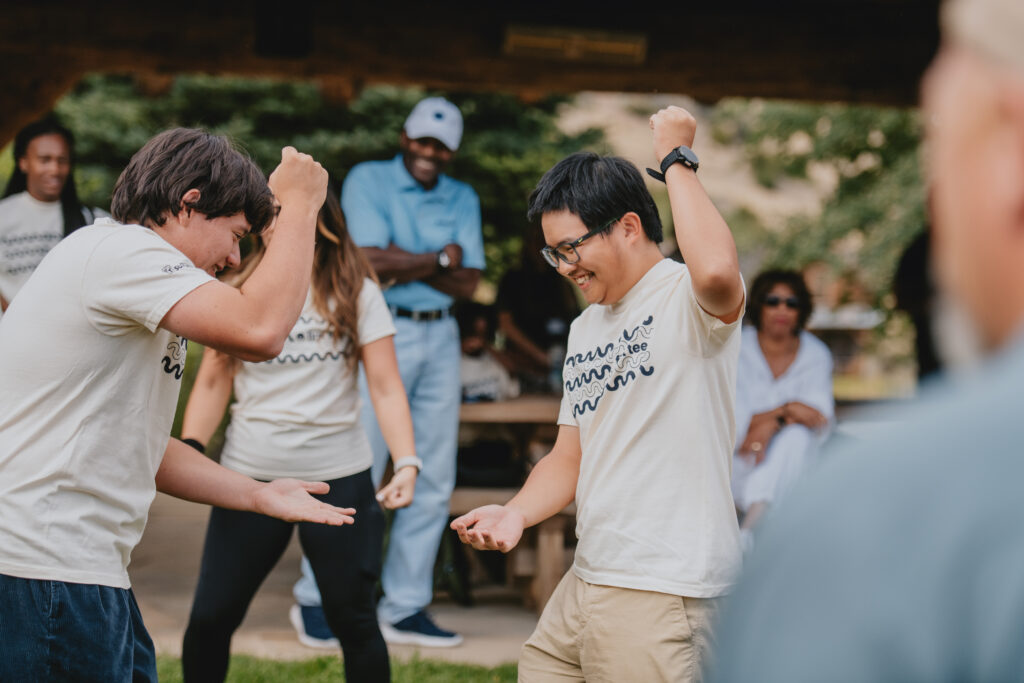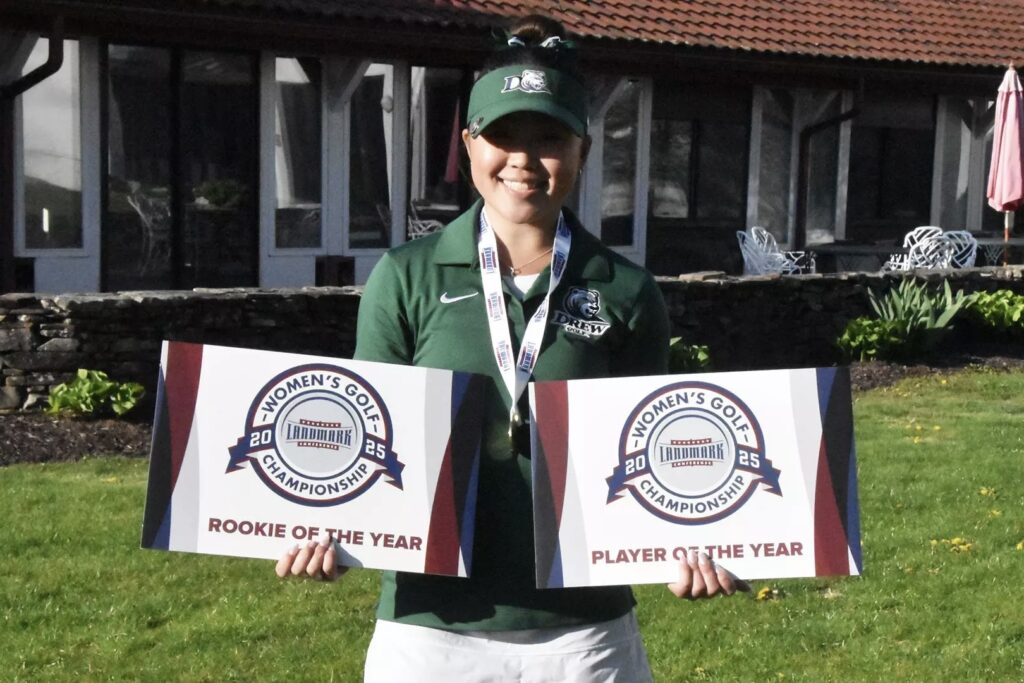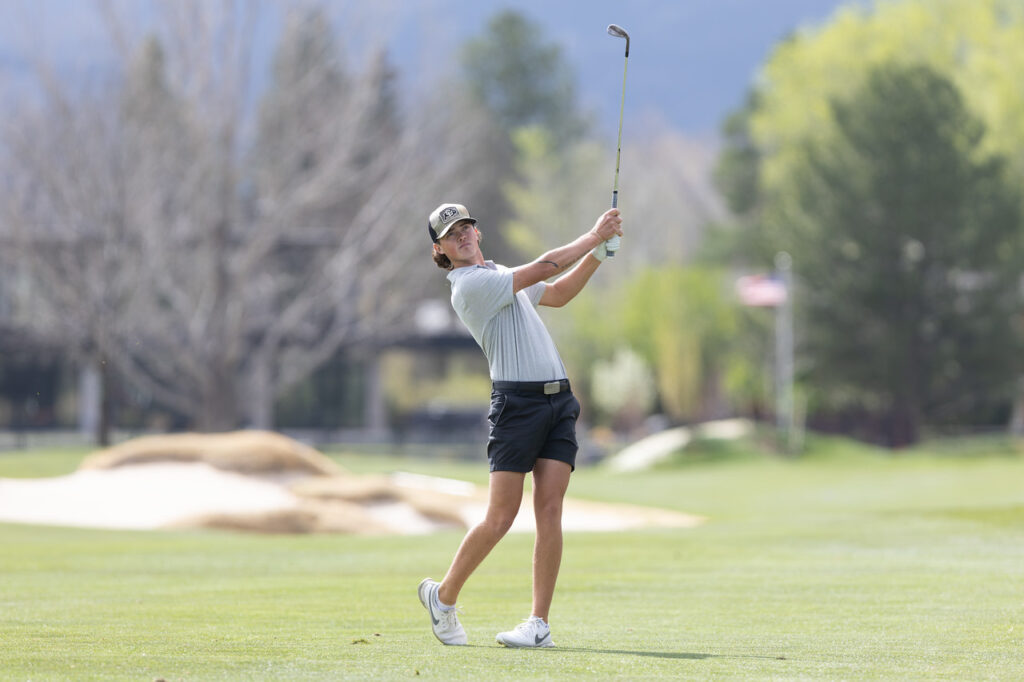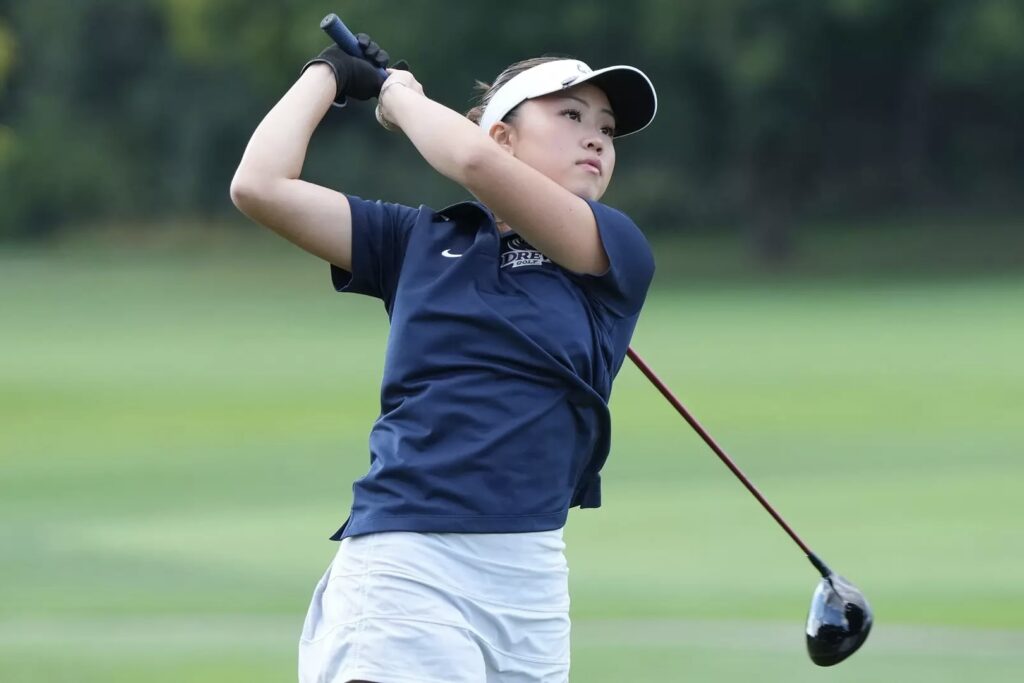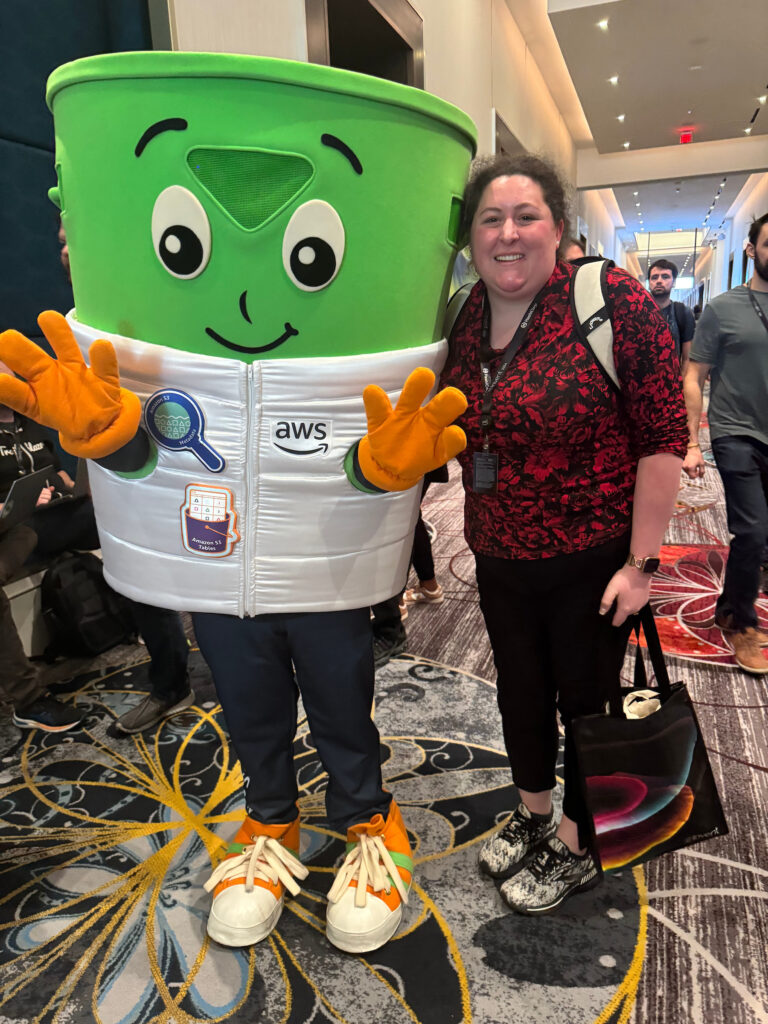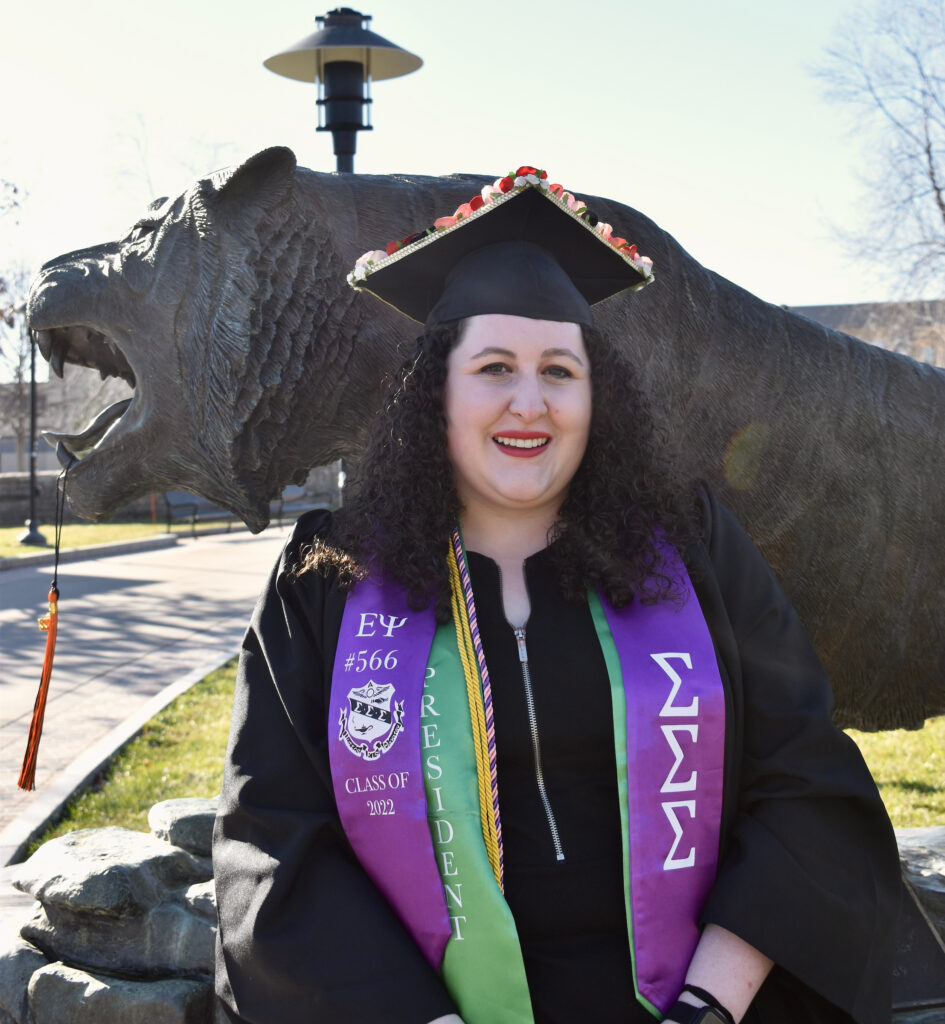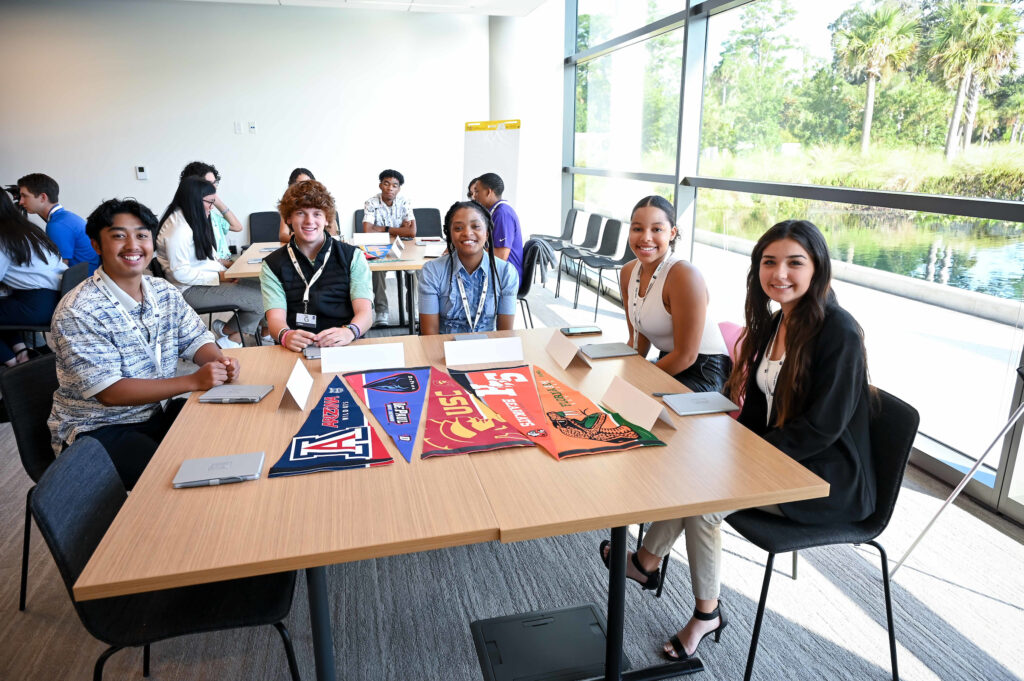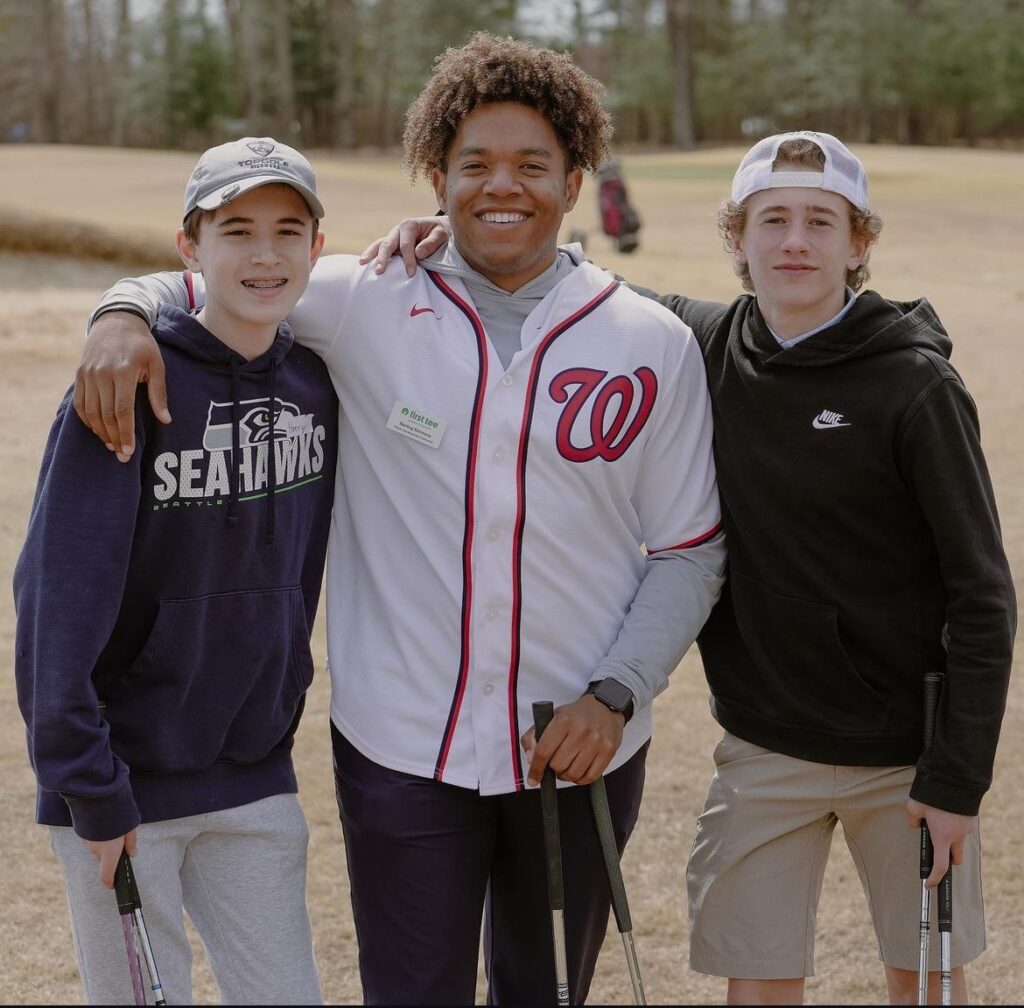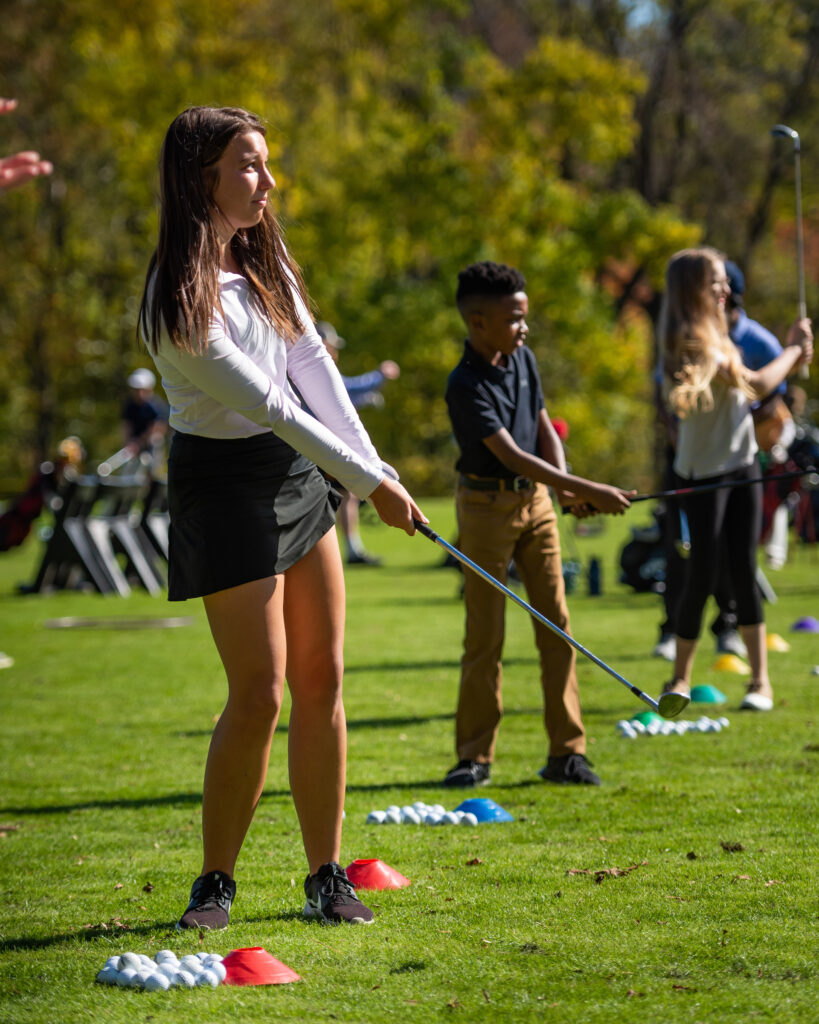One of the most impactful aspects of the First Tee College Scholarship Program is mentorship. Each Scholar is matched with a dedicated adult to support them as they enter college and prepare for life after graduation.
First Tee Scholar Esther Etherington is a senior at Franklin College, where she’s majoring in elementary education and nonprofit leadership with plans to enter the golf industry. Last summer, Esther interned with First Tee — Greater Charleston’s Pathfinder Program and served as a USGA Pathways intern at the U.S. Open. This past summer, Esther worked at her former chapter, First Tee — Indiana, as the site director in Richmond. Her team helped to successfully launch three new community partnerships with the Boys & Girls Club, Girls Inc. and Townsend Community Center, reaching its highest number of participants since COVID-19, 160 youth.
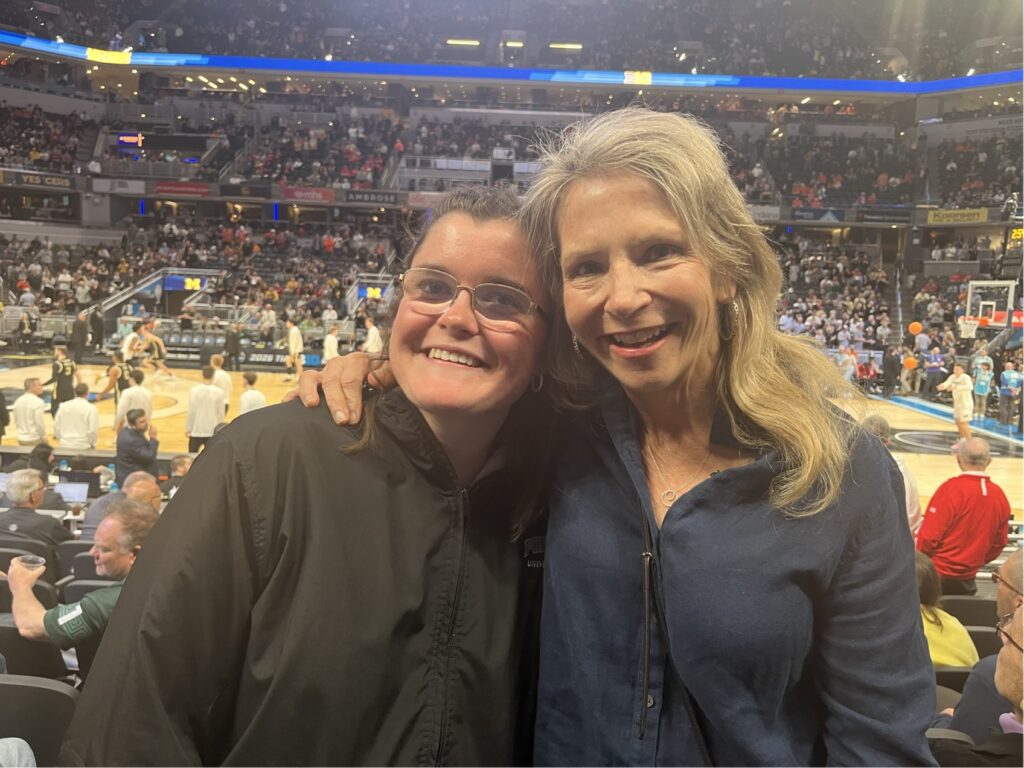
Esther’s mentor is Hope Oaks, a Ball State University graduate. Hope is a health science systems specialist at Pfizer, Inc., and she currently serves on the board of directors for the Indiana Golf Foundation and the Indianapolis Jazz Foundation.
They shared their experience and tips on building a successful mentor-mentee relationship.
FT: Describe your experience as a Scholar mentor.
HO: I felt honored when asked to be Esther’s mentor because I had already been a witness to her leadership at First Tee when she would speak at our fundraising events while she was in high school. Her confidence, authenticity and desire to share the gifts she was given resonated with me.
FT: How did you build trust with your mentee?
HO: My experience has been that trust is built with time and keeping commitments with one another. My mentors have set a good example for me by creating a safe space to share questions, challenges, goals, disappointments, frustrations and the emotions that go with them. It’s vital to know you can 100% show up and express your true self.
FT: What is one word you’d use to describe your mentoring relationship and why?
HO: Joy. Whenever the next thing on the calendar is coming up that we have set, I know that our time together will result in a happy spirit and a positive memory. Esther inspires me and we both have similar humor.
FT: Describe a memorable moment you’ve shared with your mentee.
HO: One of my favorite moments was this summer when I spent the day observing and volunteering at Esther’s First Tee location in Richmond. Her organization and leadership skills are to be coveted. It was so much fun to see it all in action with her coaches, volunteers and students. She was truly sharing her gifts with the world. The parents were happy their kids were in the program, and you could see the kids were delighted to be there and having fun while learning. Esther is a connection and networking queen, and she built a successful program in less than six months from scratch because of her reputation and genuine relationships in her community. She connects with each child at their level: kindness, care, thoughtfulness and fun are all in her bag of superpowers. She continues to inspire me as an example and I’m grateful for the opportunity this program has afforded us.

FT: How has your mentor helped you feel more confident or prepared for life after college?
EE: Hope has helped me feel more prepared for life after college by celebrating and capitalizing on my strengths. Her perspective has provided valuable connections, advice and friendship which has made me a better and more well-rounded person.
FT: How do you feel your relationship with your mentor has changed your college experience?
EE: The relationship that I have with Hope has been a transformative part of my college experience because she is a close member on my “go to” team. Hope is always a phone call or text message away.
FT: Drawing from what you’ve observed in your peers’ mentoring relationships, what advice would you share with someone just starting out as a mentor?
EE: When you are just starting out as a mentor, it is important to remember that the mentor and mentee relationship is a two-way street. Your mentor is there for you in the highs and lows of college and beyond, so effort and transparency are important.
FT: Describe a memorable moment you’ve shared with your mentor.
EE: We have had many memorable moments including going to a Purdue basketball game, the Indy Jazz Kitchen and lots of golf together. At the top of the list includes Hope traveling from Indianapolis when I was the site director at First Tee – Indiana in Richmond to volunteer with the kids.



